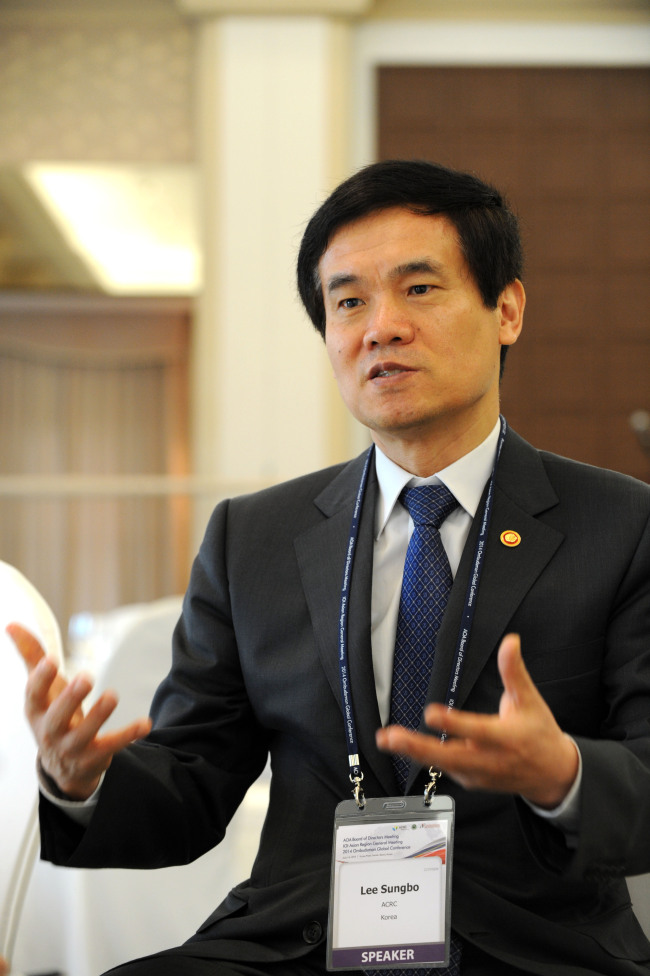As the role of an ombudsman gradually shifts to that of as a mediator, the Korean civil rights watchdog is seeking to actively resolve conflicts within society.
In the 2014 Ombudsman Global Conference hosted by the Anti-Corruption and Civil Rights Commission, Lee Sung-bo, chairman of the commission, emphasized the significance of collective complaints in Korea.
“Because collective complaints are complex and involve the interests of several parties, it is hard to simply give a correction order and be done with it. Thus, the ACRC’s role as a mediator is growing,” he said.

Lee Sung-bo, chairman of the Anti-Corruption and Civil Rights Commission
In 2011, there were only 47 complaints filed by more than 100 people, but the figure surged to 78 in 2013.
There are also increasing cases of numerous people filing complaints against multiple agencies, Lee said, which adds to the complexity of resolving collective complaints.
“There are several cases with over tens of thousands of stakeholders, and these have the potential to develop into nationwide confrontation unless resolved in an early stage,” he said.
But the current legislation hinders the watchdog from settling conflicts in the initial stages.
“When I visited the National Assembly yesterday, the lawmakers were asking me why the ACRC won’t do anything to resolve the clashes in Milyang,” he said. The Korea Electric Power Corp. and the residents in the remote region of South Gyeongsang Province are currently at loggerheads over the controversial construction of high-voltage transmission towers.
“In the case of Milyang, there was a complaint about a lack of dialogue between KEPCO and the residents in 2009. So we established a communication channel between them,” he said. “But we were unable to intervene (in subsequent conflicts) because there were no more formal complaints filed with the ACRC.”
The current system allows the group to take action only after there has been a formal complaint, he explained. In addition, only the citizens and not the administrative agencies are able to file them.
In order to prevent mass-scale conflicts, Lee said the rights commission is pushing for a new act on allowing the group to preemptively investigate potential strife.
The new law, which the ACRC hopes will be submitted to the parliament in October, will grant the ACRC the authority to investigate and find ways to resolve social conflicts before an official complaint is filed.
It will also allow administrative bodies to file complaints and will provide legal grounds for the ACRC to seek help from private experts who have more expertise in resolving the issues at hand.
Relying on outside experts won’t be enough, Lee said, adding that the ACRC would provide various training programs to hone the skills of its employees to become better mediators. He also said the ACRC would become a control tower in cases where various government agencies are required to cooperate on a certain issue.
Lee expressed his hopes that civil rights watchdogs around the world can work together to find ways to better deal with collective complaints.
“I hope we (ombudsman institutes) can take this conference as an opportunity to start sharing our experiences of mediating collective conflicts,” he said.
By Yoon Min-sik (
minsikyoon@heraldcorp.com)






